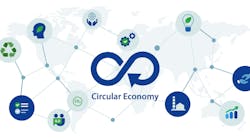In a letter to a small proportion of its customers, Philips Lumileds has initiated a Return Request Action for certain LUXEON Rebel (with TFFC) and LUXEON K2 with TFFC LEDs manufactured from within a certain date range (coded WW0744 to WW0802).
The letter listed a series of specific part numbers, and recommended that all the listed products within the affected date codes should be returned.
Lumileds told LEDs Magazine that it contacted all customers affected by this return request, which constitute about 5% of its total customer base, within one week of discovering the problem.
Customers that have not been contacted are not affected by the return request. Also, there are many Lumileds products that are unaffected by the recall.
Perhaps more significantly, Philips Lumileds has temporarily suspended production of LUXEON Rebel (with TFFC) and LUXEON K2 with TFFC emitters. The company said that production will remain on hold until it has resolved the issue.
This is a packaging problem that arose in Lumileds’ packaging facility in Malaysia. The company says that verification of the exact root cause of this quality issue is under rigorous investigation. The letter to customers said, “We anticipate that our production line will resume sometime in March 2008.”
The letter explained that the company has “identified a batch of non-conforming epoxy material used in the production of LUXEON Rebel (with TFFC) and LUXEON K2 with TFFC products…This non-conforming epoxy material has the potential to cause the TFFC die to crack and fail during short-term operation. We have seen a failure rate that exceeds our specifications.”
Specifically, under normal operating conditions, the affected products experience infant mortality failure within the first 24 hours of operation with failure rates of 10-30%.
Lumileds is continuing to manufacture LED chips, so it will be able to rapidly restart production on the TFFC production line after testing, corrective action and qualification have been carried out.
A Lumileds spokesperson told LEDs Magazine that, while the affected customers were likely to be unhappy about the recall, they would probably appreciate the proactive nature of the action.




